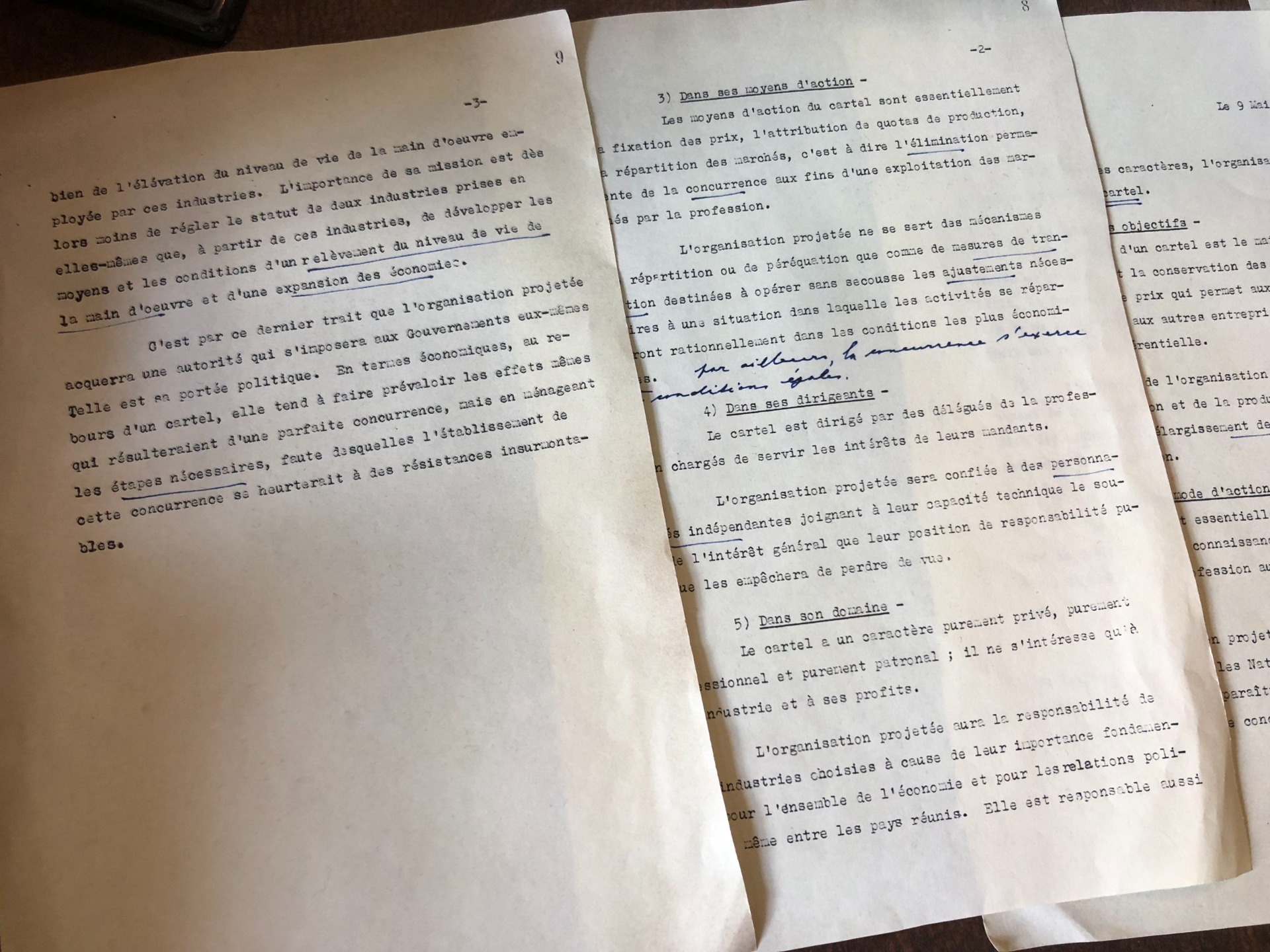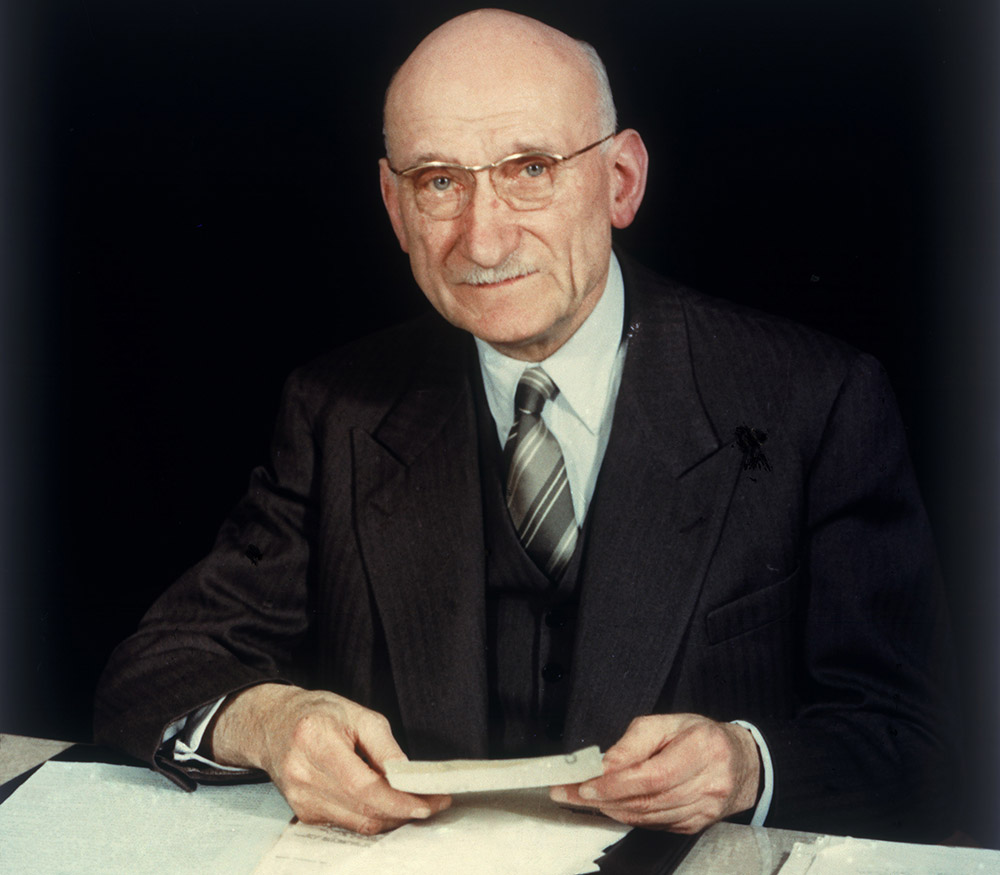THE SCHUMAN DECLARATION

After 9 iterations, the Schuman Declaration was presented on the 9th of may 1950 by French Foreign Minister Robert Schuman in the Salon de l'Horloge of the Quai d'Orsay in Paris, initiating European integration, and marking the first step toward unity and peace. Its leading breakthrough was France and Germany, historic rivals, submitting to a supranational institution, exchanging sovereignty for economic cooperation. Never before had two former enemies collaborated at such a level, proving that economic unity could overcome long-standing rivalries and lay the groundwork for a more stable continent.
After immense suffering, both countries aimed to bring peace to the ravaged continent. The unprecedented cooperation resulting from the Declaration set the foundation for future treaties. It was understood that political integration should begin through economic collaboration. The declaration's legacy is seen in the gradual evolution of European institutions. It directly led to the formation of the European Coal and Steel Community (ECSC) in 1951, the European Economic Community (EEC) in 1957, and later, the European Union in 1993. The core principles introduced (economic cooperation, shared sovereignty, and peace through integration) continue to shape EU policies today. The idea that economic ties could create lasting peace has influenced European diplomacy, trade policies, and even enlargement strategies, as the EU expanded to 27 member states from the 6 founding members of the ECSC.

Robert Schuman centered on cooperation in coal and steel, the foundation of a nation's economy and industry. In the 1950s and early 60s, coal was the primary energy source, powering industry and war. These sectors held strategic importance, and by uniting them under a common market, the Schuman Declaration aimed to end the Franco-German cycle of industrial competition that had fueled conflict since the Industrial Revolution, thus preventing another war between them from taking place. Additionally, post-WWII Europe needed reconstruction, and this economic collaboration promoted mutual growth.
In the Declaration, many characteristics of the EU seen today were already sketched. The idea of an independent governing body that oversees economic cooperation was introduced. This evolved into the European Commission, which upholds EU treaties and ensures compliance. The idea that economic collaboration leads to political stability gave rise to the European Single Market and Eurozone policies, and remains at the heart of the EU, as well as cracking down on cartels and anti-competitive practices, ensuring fair production and a more stable economic environment. The equal representation of member states is also mentioned. Nowadays decisions continue to be made on a parity basis in institutions like the Council of the EU. The concept of the Higher Authority's decisions having executive force in member countries persists in EU law today, where EU regulations are directly applicable in all member states. The original provision for appeals against authority decisions evolved into the European Court of Justice (ECJ), which ensures EU law is applied uniformly. The Schuman Declaration required reports to the United Nations, reflecting a commitment to transparency, which continues today through EU-UN cooperation.
The Schuman Declaration has served as a model for the EU's creation, but the proposals outlined remain unfinished. As it states at the beginning, "Europe will not be made all at once". The main idea behind the declaration was the creation of a "European federation", deemed "indispensable to the preservation of peace". However, this degree of integration has not been achieved mainly due to political, historical, and ideological reasons. Many countries fear losing autonomy to a central bureaucracy that could fail to address their citizens' needs. A European identity has not yet formed for many as Europe is a diverse continent, rich with different cultures and ideas. Historical rivalries strain relations between some constituents and potential members (Turkey and Greece). Many Europeans feel that recent EU legislation, including agricultural and financial policies, has created bureaucratic burdens, rather than improving their lives. These factors have led to rising euroscepticism and anti-EU sentiment. Despite these legitimate concerns about EU governance and integration, we must also acknowledge the essential role the EU plays in safeguarding peace, both in Europe and globally, in an increasingly unstable world. Some statements and implicit visions of the text are outdated. For instance, the Eurocentric view that considers it Europe's obligation to develop its African colonies contradicts the belief in self-determination and equality. However, while acknowledging its outdated elements, the core principles of the Schuman Declaration remain crucial for addressing contemporary European challenges, from regional security to economic stability. The idea of a united Europe came after World War II to prevent such a horrid event from happening again. Now more than ever, in a time of rising nationalism and political divisions, we must defend this idea, which might be the only way to maintain prosperity and international relevance while keeping the relative peace we have enjoyed for over 75 years.
